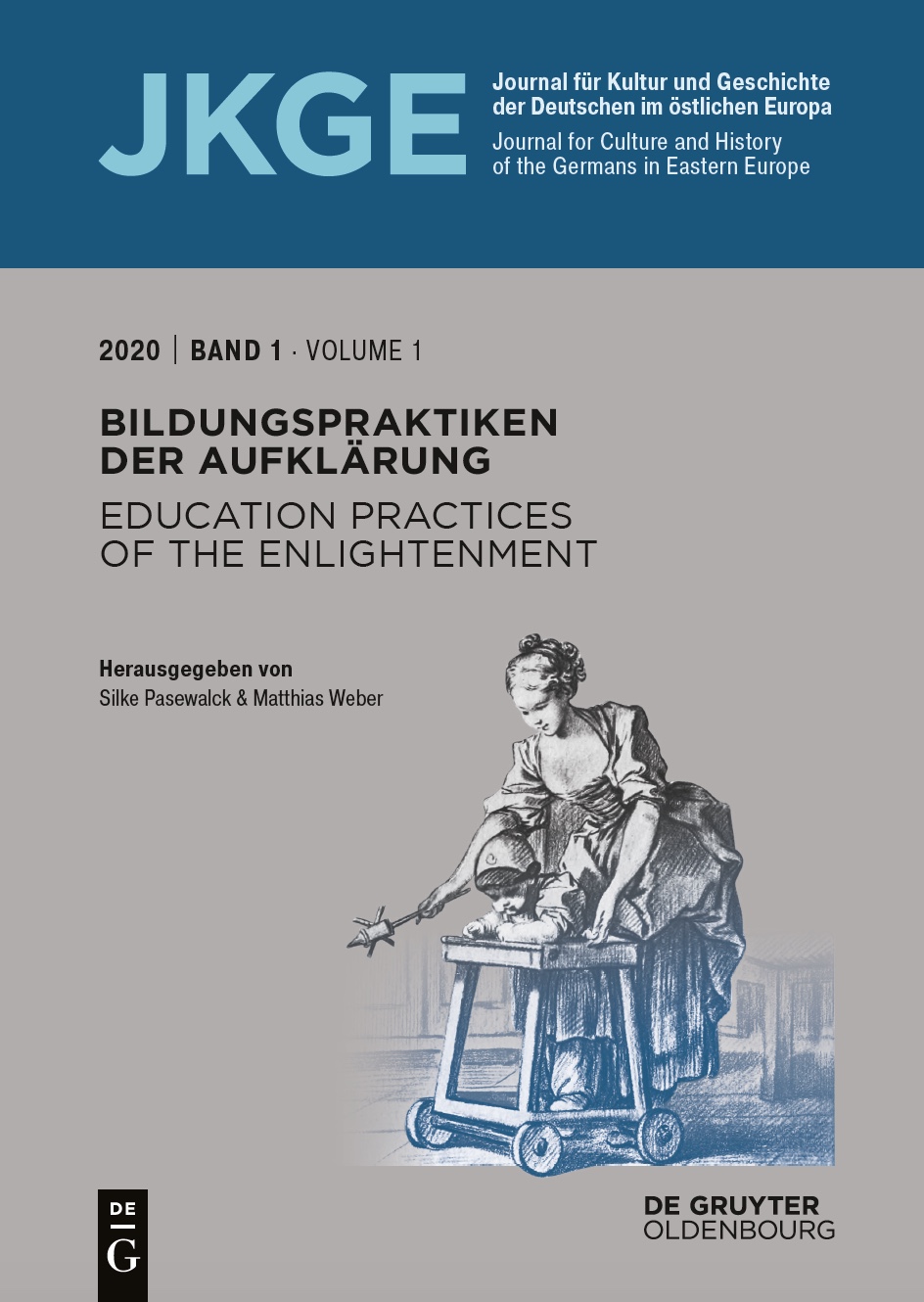Nützt es dem Volke, übersetzt zu werden? Oder: Was Translation über die (livländische) Aufklärung verraten kann
Does it benefit the people to be translated? Or: What translation can reveal about the (Livonian) Enlightenment
Author(s): Julija BogunaSubject(s): Cultural history, 18th Century, 19th Century, Translation Studies
Published by: De Gruyter Oldenbourg
Keywords: Translation; popular enlightenment; Garlieb Merkel; critique of colonialism; Livonia;
Summary/Abstract: The Prize Question of the Prussian Academy of 1780 – “Does it benefit the people to be deceived?”– does not contradict the Age of Enlightenment, it rather illustrates its ambivalence and dynamics. Relative enlightenment within the boundaries of social class co-exists with abolitionism, theological enlightenment with anti-clericalism, emancipation through education with restrictions by the same. However, this diversity is subject to change. What happens when the egalitarian conversation among scholars is transformed into an educational one of ‘the Enlightener’ with the people, especially in multilingual communication areas like Livonia? Translation as a transcultural communicative action becomes a constitutive part of the Enlightenment discourse itself because of this multilingual context. Translation here is by no means to be seen as a contingent strategy, but rather as the possibility of the act of speech itself. Using the translations and poetological statements – as well as translation critiques – of Garlieb Merkel (1769–1850) as an example, this article will discuss what can be learned about the Enlightenment from translation?
Journal: Journal für Kultur und Geschichte der Deutschen im östlichen Europa
- Issue Year: 1/2020
- Issue No: 1
- Page Range: 51-72
- Page Count: 22
- Language: German

